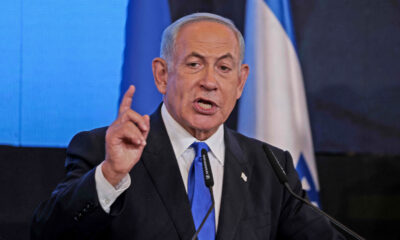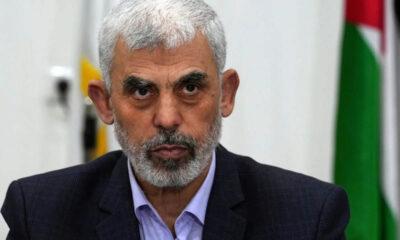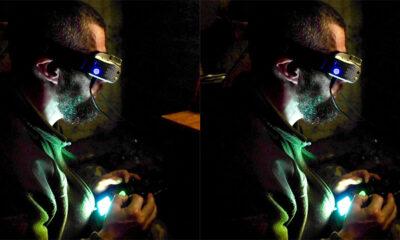International
Zelensky, entering new stage of war, faces political test

Nearly every day, Ukrainian President Volodymyr Zelensky, clad in dark green, records a video address to the Ukrainian people, sometimes seated at a desk, other times standing outside in the dark of the night. Lately, he has been warning of difficulties yet to come.
“We all equally want to win — all of us — but there will be battles ahead,” Zelensky said Thursday, with street lamps illuminating Kyiv’s ornate House of Chimeras, part of the government complex, behind him. “We still have a difficult path to travel to get everything we are striving for.”
Among the most challenging paths is that facing Zelensky himself.
The 44-year-old Ukrainian comedian has evolved from a political neophyte, widely doubted among Western leaders and Ukrainian voters in the run-up to the war, into a crisis commander who has cemented his place in the history of Ukrainian nationhood and inspired a will to resist at home and abroad with personal bravery.
Now, as the war grinds on in its sixth week and peace talks between Ukrainian and Russian negotiators continue, Zelensky faces a new set of challenges. He must keep up morale and the will to fight amid battlefield casualties, economic devastation and vast civilian suffering. He must retain the confidence of Western nations that Ukraine can prevail to ensure weapons keep flowing.
But as time goes on he must also figure out what if any sort of political agreement with Moscow to end the war will be acceptable to a Ukrainian population riding high after repelling Russian forces in many areas and feeling inspired to resist by his own actions and words.
“He has relied on intense feelings of nationalism to continue to fight this war, but those are exactly the forces that make it extremely difficult to put this war to an end,” American University political science professor Keith Darden said, noting that it’s unclear how long Ukraine can keep up the fight. “That’s the real dilemma in my mind.”
READ ALSO:
- Anti-govt sermon: Suspended Abuja Imam breaks silence, says ‘only God dethrones’
- Abductors Of Abuja Monarch Ask Family Members To Sell His House To Raise N20m Ransom
- Russia Hits Ukraine’s Strategic Port Of Odessa
- Iheanacho scores in Leicester’s draw with Man United
Zelensky for months has unsuccessfully been seeking a meeting with Russian President Vladimir Putin to discuss Moscow’s myriad demands. David Arakhamia, head of the Ukrainian delegation to the talks, said Saturday that Kyiv is preparing for a possible meeting between Zelensky and Putin in Turkey.
For Zelensky, however, any deal with the Kremlin is politically fraught.
One effect may be to prolong the war if Zelensky doesn’t feel he has the public backing to make the compromises necessary to stop it. Another might be that his extraordinary public support erodes in service of a peace agreement.
Zelensky has been laying the groundwork with Ukrainians to end the country’s constitutionally enshrined quest to enter NATO, noting that the alliance isn’t prepared to accept Kyiv. He has focused efforts instead on securing European Union membership.
The Ukrainian leader has shown flexibility and practicality, defining victory in an interview with the Economist last month as “being able to save as many lives as possible.”
“Our land is important, yes, but ultimately it’s just territory,” he said.
At the same time, however, he pledged to fight Russia “to the last city.”
Zelensky also has warned Ukrainians that the Russians are likely regrouping to focus on attacking a more targeted set of areas, particularly those where Ukrainian forces may face the most difficulty — and has called on Ukrainians to steel themselves for a long conflict.
“Right now everyone is eager to resist — eager if not to win, then to batter Russia as much as possible,” said Mikhail Minakov, a political analyst on Ukraine at the Kennan Institute. “He is in a sort of Catch-22. He tries to find the possible way of staying in this position, remaining charismatic, but at the same time to find a solution.”
Underestimated in Moscow and the West
After playing Ukraine’s president in a popular TV series, Zelensky entered office in 2019 with extraordinary popular support, commanding 73 percent of the vote, as well as a majority for his party in the Ukrainian parliament. He attracted a broad and disparate swath of voters with his populist outsider appeal and promise to end the war in Ukraine’s east.
But by late last year, as Russia amassed troops and materiel on Ukraine’s border, Zelensky’s approval rating had plummeted to about 30 percent. Met with Russian intransigence and Ukrainian political constraints, he failed to end the war. His inexperienced team realized the difficulty of implementing big changes.
Russia’s invasion appeared to indicate the Kremlin also thought little of Zelensky, expecting the former actor to flee Kyiv out of fear for his own life in a manner that would hobble the country’s ability to resist.
Zelensky was equally underestimated among Ukraine’s partner nations in the West, where many officials viewed him as an inexperienced and somewhat unpredictable leader who failed to appreciate the seriousness of the security situation. In the days before the war, Zelensky’s advisers expressed doubts Russia would invade. One senior adviser, reflecting the atmosphere around Zelensky, insisted the Russians were “bluffing” and looking only to intimidate Ukraine.
READ ALSO:
- Suspected cultist kills dad over sleep disturbance in Ogun
- How people fall victim to fake Customs car auction by internet fraudsters
- N30,000 permit for borehole drilling in Oyo unacceptable — Association
Russian forces had massed on the border before and backed down. The aide said he saw no reason to believe that this time would be different — and blamed the Biden administration for stoking panic with talk of an invasion. He said that Zelensky’s main responsibility was to avoid a run on banks and capital flight from the country.
But career officials within Ukraine’s national security apparatus agreed with U.S. and British intelligence assessments that Russia was likely to invade. They were frustrated in their own efforts to persuade Zelensky and felt his closest advisers weren’t telling him the hard truth that an invasion looked imminent, said one senior Ukrainian official.
In mid-January, CIA Director William J. Burns flew to Ukraine and met with Zelensky. According to people familiar with their conversation, Burns shared intelligence that had persuaded U.S. officials about Russia’s intentions. At the time, intelligence also suggested that Russian hit teams might already be in Kyiv, according to officials familiar with the information who, like others, spoke on the condition of anonymity to discuss sensitive diplomacy and intelligence.
Zelensky asked if he and his family were personally in danger. The CIA director made clear that the president needed to take his security seriously. Zelensky was skeptical, the Ukrainian officials said. The Zelensky senior adviser said that the information Burns shared sounded dire but, in his opinion, wasn’t specific enough for the Ukrainians to act. U.S. officials have disputed that characterization, noting that by the time Zelensky and Burns met, the Biden administration had already declassified intelligence including satellite photos that showed Russian forces moving into attack formations.
Zelensky didn’t call on his citizens to evacuate or authorize a general mobilization. Cafes and shops in the capital remained open until the very last moment. A former Western intelligence official in Kyiv at the time said he was bewildered that the government wasn’t conducting frequent tests of air raid warning sirens and public drills.
For much of January, as the United States and other NATO allies delivered one warning after another to the Ukrainians of the buildup on their border, Kyiv’s political world was focused on treason accusations against Zelensky’s predecessor, former president Petro Poroshenko.
A hero emerges
After the Russians invaded and tried to make a lightning dash into Kyiv, Zelensky demonstrated far more mettle than politicians in both Russia and the West had expected, refusing to leave the capital even as those intent on killing him tried to enter the city.
“I was positively surprised,” Minakov said. “I myself see the emotion of this charisma. I respect him for what he is doing — and that is an unusual feeling. In Ukraine, we don’t usually respect politicians.”
Even after Zelensky’s display of courage, many around the world still expected him to be killed by Russian invaders in Kyiv or forced to flee the capital within days. But the Ukrainian military performed far better than many expected. The Russians, meanwhile, bungled their assumptions and logistics, stalling the advance on the capital.
With the prospect of finally meeting Putin in person for peace talks, Zelensky is armed with a groundswell of political support, as well as battlefield successes. He faces a test of whether he can parlay that political capital into a lasting peace acceptable among most Ukrainians.
It’s unclear if the moment is right, as Russian forces still appear determined to take more territory in the east, and Ukraine so far remains unwilling to give up any of the land Russia has claimed since Feb. 24.
Serhiy Leshchenko, a former member of Ukraine’s parliament now advising Zelensky’s chief of staff, said despite the desire to continue resisting, there are perhaps less-vocal Ukrainians under siege who want and need an agreement to stop the fighting.
“People living under bombing in Mariupol, Kharkiv and Chernihiv have much less access to social media than people in a safe place,” Leshchenko said, before noting the dilemma facing Zelensky.
“People want to stop the war. People want normal life to come back,” Leshchenko said. “People want to defend Ukraine from the aggressor. People don’t want to lose territory and sovereignty.
THE WASHINGTON POST
International
Israel confirms killing Safieddine, likely successor to slain Hezbollah’s Nasrallah
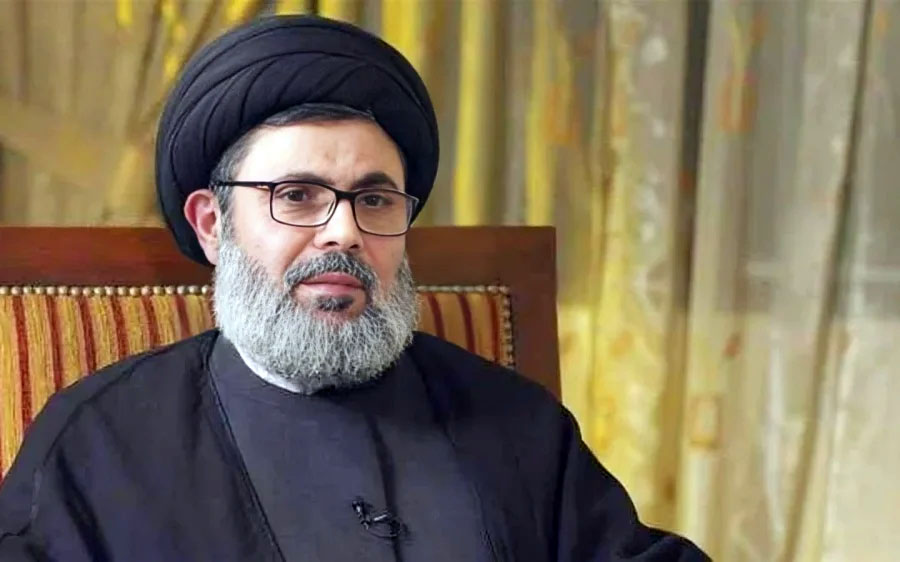
Israel confirms killing Safieddine, likely successor to slain Hezbollah’s Nasrallah
JERUSALEM: Israel’s army confirmed Tuesday it “eliminated” Hezbollah’s Hashem Safieddine, apparent successor of slain leader Hassan Nasrallah, in a strike in a southern Beirut suburb three weeks ago.
“It can now be confirmed that in an attack approximately three weeks ago, Hashem Safieddine, the head of Hezbollah’s Executive Council, and Ali Hussein Hazima, the head of Hezbollah’s Intelligence Directorate, were killed along with other Hezbollah commanders,” the army said in a statement.
Hezbollah has not yet issued a statement regarding the claim.
On October 8, Israeli Prime Minister Benjamin Netanyahu said that the military has “taken out” Safieddine, without specifically naming him.
In an address to the people of Lebanon, Netanyahu said Israeli forces “took out thousands of terrorists, including (Hezbollah leader Hassan) Nasrallah himself and Nasrallah’s replacement and the replacement of his replacement.”
Late on Tuesday, the army said that Israel’s air force “conducted a precise, intelligence-based strike on Hezbollah’s main intelligence headquarters,” in the southern Beirut suburb of Dahiyeh, Hezbollah’s stronghold in the Lebanese capital three weeks ago.
The statement added that over 25 Hezbollah militants were present in the headquarters during the strike, “including Bilal Saib Aish, who was in charge of aerial intelligence gathering.”
READ ALSO:
- Nigeria investigates Gulf of Guinea as major arms trafficking route – NSA
- You can’t overrule Supreme Court judgement on LG autonomy – AGF
- Fake fertility nurse arraigned in Enugu for defrauding 45 women
A member of Hezbollah’s decision-making body and a distant relative of Nasrallah, Safieddine was out of contact since Israeli strikes on Beirut weeks ago, a high-level Hezbollah source said at the time.
A source close to Hezbollah told AFP in early October that the deeply religious cleric Safieddine, who had good relations with Hezbollah backer Iran, was the “most likely” candidate for the party’s top job.
Grey-bearded and bespectacled, Safieddine bore a striking resemblance to his distant cousin Nasrallah, but was several years his junior, aged in his late 50s or early 60s.
“We have reached Nasrallah, his replacement and most of Hezbollah’s senior leadership,” the Israeli army’s chief Lt. Gen. Herzi Halevi said in a statement late on Tuesday after the confirmation of Safieddine’s death.
After nearly a year of war with Palestinian Islamist movement Hamas in Gaza, Israel shifted its focus to Lebanon in late September, vowing to secure its northern border threatened by cross-border fire from Hamas’s Lebanese ally Hezbollah.
Israel ramped up its air strikes on Hezbollah strongholds around the country and sent in ground troops late last month, in a war that has killed at least 1,552 people since September 23, according to an AFP tally of Lebanese health ministry figures.
The Israeli military issued new calls for residents to evacuate areas in the southern suburbs of capital Beirut on Tuesday evening, warning of imminent attacks.
In recent days the military has targeted Hezbollah’s financial assets across the country.
Hezbollah, meanwhile, has continued to fire rockets and missiles at Israel.
“As of 23:00 (2000 GMT), approximately 140 projectiles that were fired by the Hezbollah terrorist organization have crossed from Lebanon into Israel today,” the military said in a statement late on Tuesday.
Israel confirms killing Safieddine, likely successor to slain Hezbollah’s Nasrallah
ARAB NEWS
International
Trump accuses UK’s Labour Party of ‘foreign interference’
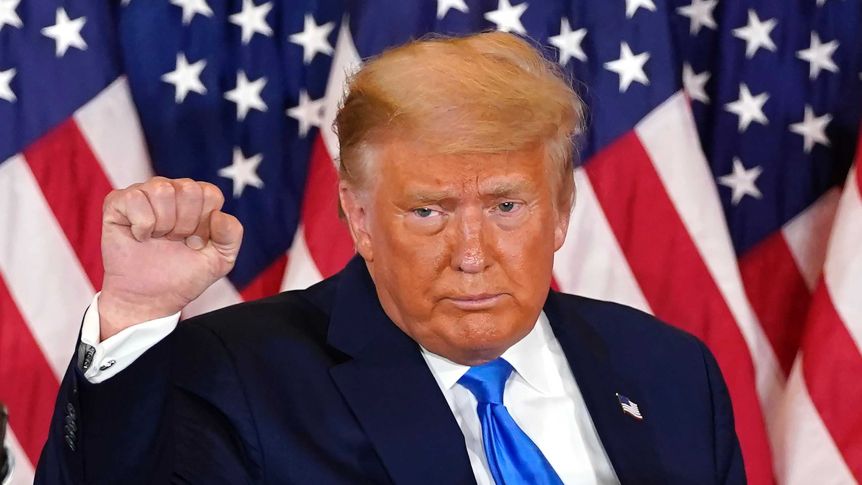
Trump accuses UK’s Labour Party of ‘foreign interference’
Donald Trump’s campaign has filed a Federal Election Commission (FEC) complaint against the UK’s Labour Party, accusing it of “blatant foreign interference” in the US election in aid of the Harris-Walz campaign.
The complaint cites media reports about contact between Labour and the Harris campaign as well as apparent volunteering efforts, arguing that this amounts to illegal “contributions”.
The BBC understands that Labour activists campaigning in the US presidential election are doing so in a personal capacity.
The Labour Party has not issued an official response.
Specifically, the complaint cites newspaper reporting that Labour-linked individuals have travelled to the US to campaign for Harris.
That reporting, the complaint alleges, creates a “reasonable inference that the Labour Party has made, and the Harris campaign has accepted, illegal foreign national contributions.”
The letter refers to Washington Post reporting that communications were exchanged between the parties and that senior officials have met in private.
Additionally, the complaint cites a social media post on LinkedIn in which a Labour staff member said that “nearly 100” current and former party members will be headed to battleground states in the US.
READ ALSO:
- Dangote’s $100m land deal: Judge, AG absence stalls court hearing
- Halima Abubakar slams AGN President with N30bn lawsuit
- Northern Nigeria suffers blackout as 330Kv circuit strips
The post, from Labour Party head of operations Sofia Patel, added that 10 “spots” are available and that “we will sort your housing”.
It appears to have since been deleted.
The complaint makes comparisons to an international programme in 2016 in which the Australian Labor Party, or ALP, sent delegates to help with Bernie Sanders’ campaign.
In that instance, however, the ALP paid for flights and daily stipends. The party and the campaign were each handed down civil penalties of $14,500.
Labour activists’ trips were not organised or funded by the party, it is understood from party officials.
Foreign nationals are permitted to serve as campaign volunteers as long as they are not compensated, according to FEC rules.
It is considered normal for party officials from the UK to be in contact with counterparts in the US.
It also has taken place previously between the UK’s Conservative Party and US Republicans.
The BBC has contacted the Harris-Walz campaign for comment.
Trump accuses UK’s Labour Party of ‘foreign interference’
BBC
International
Lebanon says four dead in Israeli strike near southern Beirut hospital
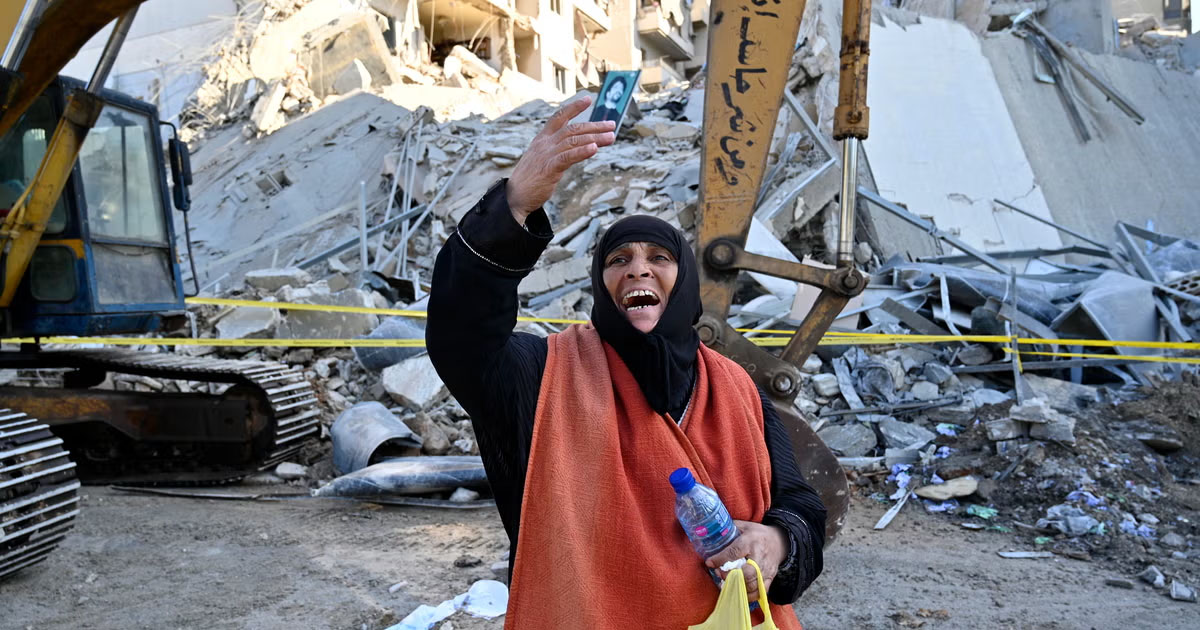
Lebanon says four dead in Israeli strike near southern Beirut hospital
Four people including a child have been killed in an Israeli air strike near the main government hospital in southern Beirut, the Lebanese health ministry says.
The strike appeared to hit the car park of the Rafik Hariri University Hospital, a hospital source told Reuters news agency. The health ministry said 24 people had been injured.
It was among 13 air strikes that hit south Beirut on Monday evening. The Israeli military said it was attacking facilities linked to Hezbollah.
An Israeli spokesman had earlier warned people to move away from several locations in southern Beirut, however Rafik Hariri hospital was not among the locations mentioned.
Videos from the Dahiyeh neighbourhood in southern Beirut, where seven locations to be targeted were announced in advance, showed locals fleeing in vehicles and on foot as the strikes began hitting.
One location identified as a target by the Israeli army was roughly 400m from Beirut airport, the only international airport serving Lebanon.
Local media shared images of some windows in an airport building that were blown in the blast.
Israel has not commented since issuing the earlier evacuation warnings.
Separately, the Israeli military said earlier on Monday that it had identified a Hezbollah bunker concealed under a different hospital in southern Beirut, which has since been evacuated.
IDF spokesman Rear Admiral Daniel Hagari said without providing evidence that the bunker under the Sahel hospital in Haret Hreik held hundreds of millions of dollars in cash and gold that was being used to fund Hezbollah’s attacks on Israel.
READ ALSO:
- Ex-president of Peru gets 20 years for corruption
- Hospitals under fire as Israeli forces deepen operations in northern Gaza
- UN chief condemns killings of civilians in Gaza
The director of Sahel hospital denied there was a bunker underneath it and called on the Lebanese army to inspect the site.
Israel appears to have expanded its war against Hezbollah beyond military infrastructure and says it is targeting the group’s financial networks.
On Sunday night Israel carried out air strikes targeting branches of a financial association linked with Hezbollah in the southern suburbs of Lebanon’s capital Beirut, as well as the south and east of the country.
The Israeli military said it targeted money held by Al-Qard Al-Hassan Association (AQAH). It offers financial services to civilians in areas where Hezbollah has strong support, but Israel and the US accuse it of being a cover for the Iran-backed group to fund its activities.
There was no immediate comment from AQAH or Hezbollah.
Also on Monday, US President Joe Biden’s special envoy to the Middle East arrived in Beirut to explore the possibility of a negotiated end to the war.
Amos Hochstein said the US wanted to see an end to the war in Lebanon end “as soon as possible”.
He said that UN resolution 1701 – which calls for the Lebanese state to be the only armed force in southern Lebanon – was “not enough” and the US was looking into what more needed to be done.
Hezbollah fighters meanwhile continued to fire rockets into northern Israel, with the military reporting that 170 projectiles had crossed the border by late Monday evening.
Israel began an intense air campaign and ground invasion against Hezbollah after almost a year of cross-border fighting sparked by the war in Gaza, saying it wanted to ensure the safe return of tens of thousands of residents of Israeli border areas displaced by rocket attacks.
Hezbollah began firing rockets into northern Israel in support of Palestinians on 8 October 2023, the day after its ally Hamas’s deadly attack on Israel.
More than 2,400 people have been killed in Lebanon since then, including 1,800 in the past five weeks, according to the country’s health ministry. Israeli authorities say 59 people have been killed in northern Israel and the occupied Golan Heights.
Lebanon says four dead in Israeli strike near southern Beirut hospital
BBC
-

 News2 days ago
News2 days agoFIRS announces recruitment of young graduates
-
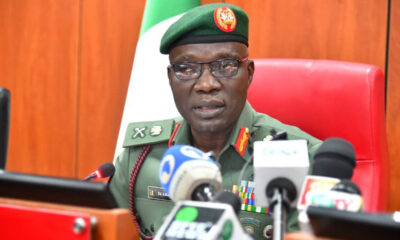
 metro3 days ago
metro3 days agoUpdated: Army says reports of COAS Lagbaja’s death fake news
-

 metro2 days ago
metro2 days agoOluwo chased me out when I visited him – Ooni (VIDEO)
-

 News3 days ago
News3 days agoOsinbajo traitor, can’t talk about integrity – Reno Omokri
-
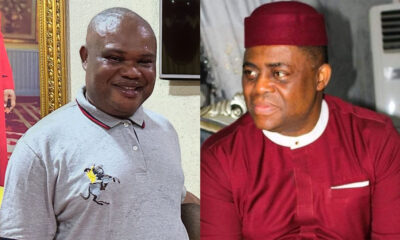
 metro3 days ago
metro3 days agoFani-Kayode: How my aide died in hotel after attending church
-

 Business1 day ago
Business1 day agoWe’re settling out of court with NNPC, others — Dangote
-

 Africa2 days ago
Africa2 days agoFamilies feared trapped as eight-storey building collapses
-

 metro3 days ago
metro3 days agoBREAKING : DSS replaces Tinubu’s chief security officer

